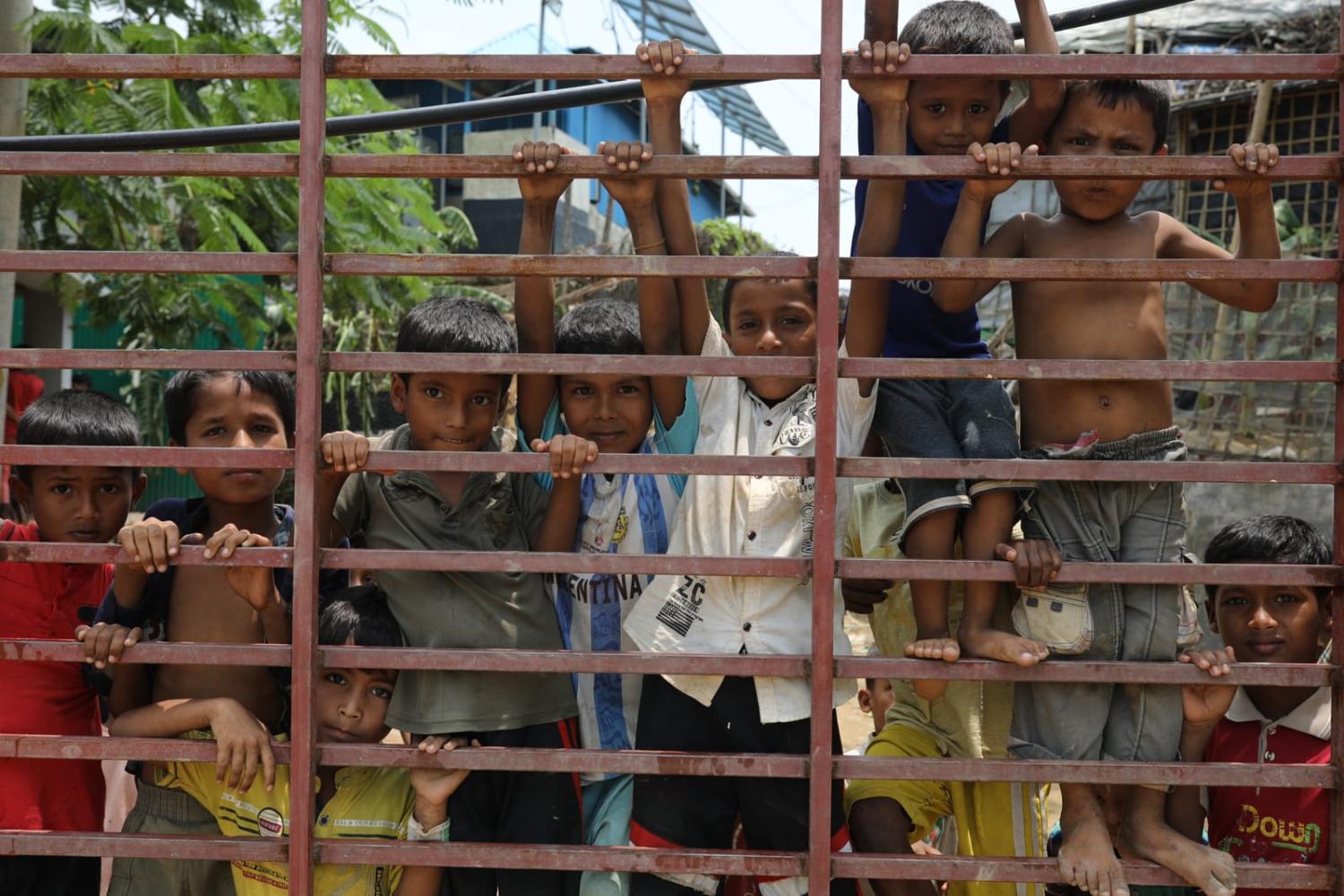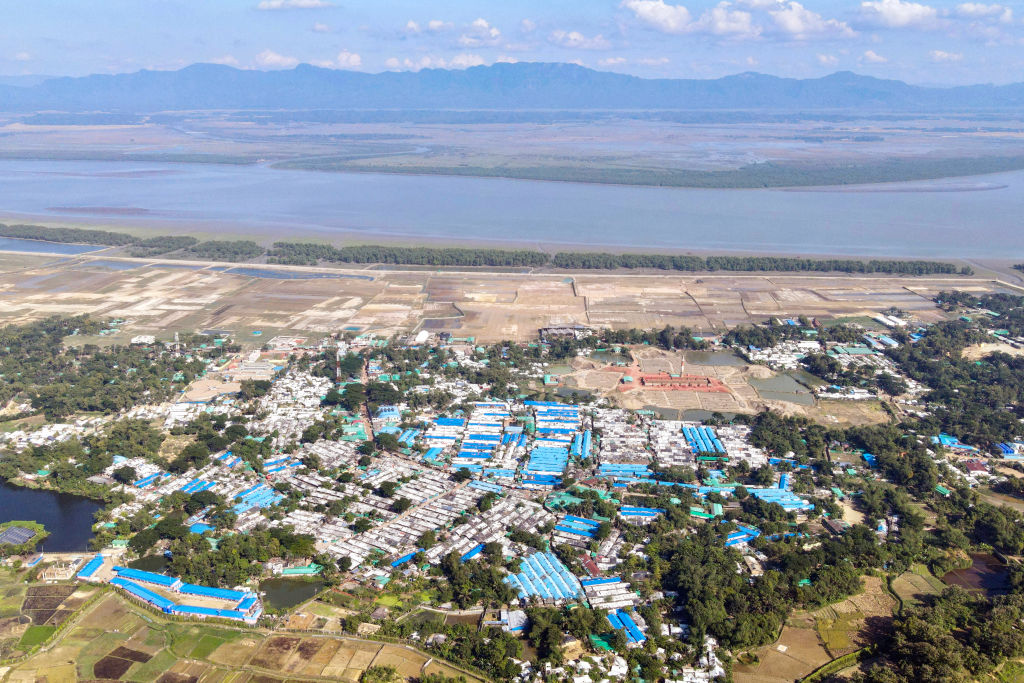 ARUNN JEGAN
ARUNN JEGAN
Last year, I wrote in The Interpreter about the nightmare scenario unfolding for the Rohingya living in refugee camps in Bangladesh, where dwindling aid, a dependent population, and unprecedented outbreaks of disease reached unacceptable and inhumane levels. Today, the situation has not changed. A deeper look at Australia’s aid agenda is required.
While Australia last year pledged $235 million to support displaced Rohingya, it has a clear moral responsibility to look beyond temporary band-aid solutions and to invest its regional and global foreign policy efforts towards turning the tide for this vulnerable population.
At Médecins Sans Frontières/Doctors Without Borders (MSF), we strongly believe that the current path donors such as Australia are taking is short-sighted and focused on containing Rohingya in fenced refugee camps where they face food insecurity and poor health conditions. This approach is directly complicit in reinforcing harmful aid-dependency, and after seven years (and for some, more than two decades), the Rohingya deserve a more humane and certain future. August this year will mark seven years since the forced exit of more than 900,000 Rohingya from their homelands in Myanmar into Bangladesh – no humanitarian program should last this long without a realistic long-term plan for a better future.
Let me be clear, the collective humanitarian response over the last seven years has been significant. More than US$1.66 billion has been spent by state donors on infrastructure at an unprecedented scale, including the building of hundreds of thousands of shelters, sophisticated chlorinated water systems, solar power, tuk tuk fire-brigade stations, and more than 15 hospitals. But it was always meant to be temporary. Aid organisations and state donors cannot sustain or have the skills and resources to meet the needs of 1.2 million people who are contained in a camp indefinitely.

It is not that the humanitarian system is failing. It is no longer fit for purpose. It is perpetuating aid-dependency and an inequitable false economy inside the camps, this in turn results in negative health outcomes for many, especially women, children and the elderly, social dystopia and rampant crime, and political tensions between the Rohingya and host Bangladeshi communities.
Australia cannot rely on humanitarian aid alone to address the crisis of the Rohingya. The absence of development opportunities for Rohingya and longer-term investments are exacerbating problems in the camps. We can point to the lack of livelihood and higher education opportunities driving rising violence in the camps, and a scabies outbreak affecting more than 400,000 people, as clear examples of an ill-fit humanitarian system. The rate at which Rohingya are trying to flee the camps is the latest and most visible example of desperation.
Between 2021 and 2023, there was a 441% increase in irregular movements out of the camps. Last year alone, there were about 4,500 movements, leaving close to 460 people missing at sea and 1,400 people who disembarked in Indonesia.
The population in the camps is growing, with more than 35,000 births a year, meaning an entire generation of young Rohingya are being born into an ever-increasing environment of dependency and desperation. Whilst MSF has always held the principled position of supporting voluntary repatriation, this is simply not viable in the short or medium term. There is an ongoing civil war in Myanmar, with frequent clashes in Rakhine State and with violence spilling over the Bangladesh border.
The conditions have not been met for Rohingya people’s safe return to their homelands in Myanmar, especially as the root causes for their displacement are yet to be addressed. In March 2022, the United States unequivocally recognised that the Rohingya people were subject to crimes against humanity and genocide in Myanmar. In 2021, the International Court of Justice ruled that there was a plausible case for genocide in a landmark case brought on by Gambia.
The Rohingya need long-term and sustainable development assistance in a place of safety, where they can resume their livelihoods, their culture and have a future for their children.
After spending hundreds of millions of dollars on aid, the United States and Australia are considering small-scale resettlement programs.
What we need now is a new five-year regional and global strategy that addresses the Rohingya crisis. MSF encourages Australia to take a leadership role in opening new pathways to alleviate the suffering of the Rohingya and to support their empowerment to get on with their lives.
Australia can play a strong part in pushing for durable solutions beyond the fences of the refugee camps, which includes working towards a scenario of repatriation to Myanmar, but also more sustainable solutions in Bangladesh. All options must be considered, including safe resettlement options, which could include improved opportunities in Malaysia and Indonesia as well as scaling-up and fast-tracking resettlement programs to the United States, Canada and Australia.
To do nothing more, and to continue the approach of containment in camps and aid-dependency is simply not an option. The stakes are too high, when the loss of a people, their culture and their rightful place on Earth is taking place nearby in the region.
It is the role of countries such as Australia to work on the broader question of statelessness and to ensure accountability for its foreign policy and aid agenda. Not addressing the stateless question of the Rohingya continues to be a stain on humanity.
source : lowyinstitute
